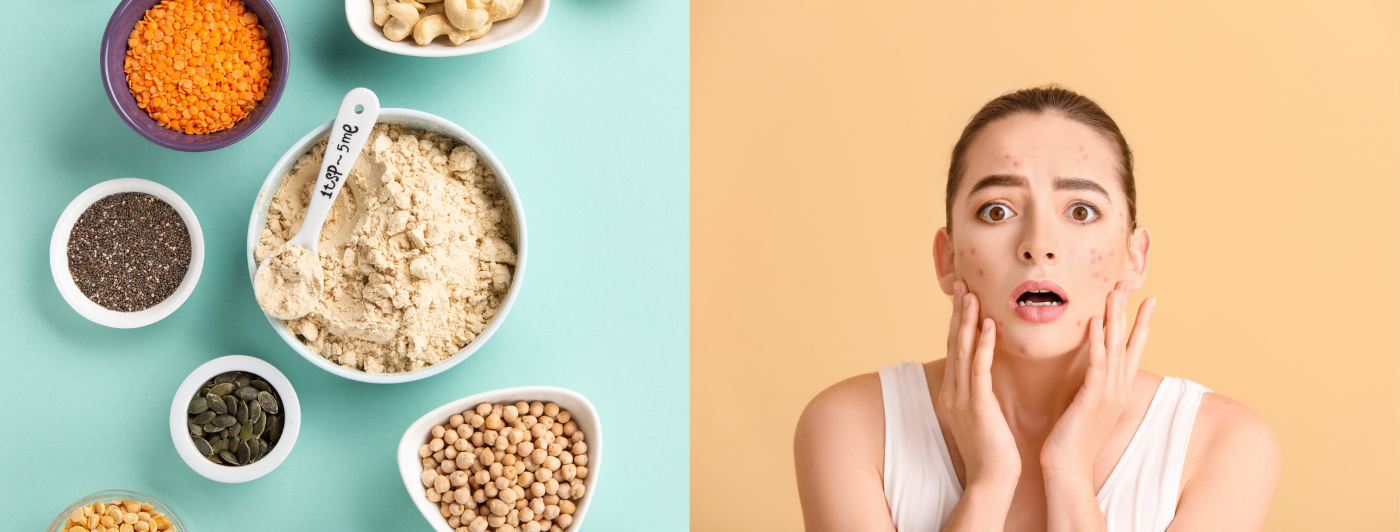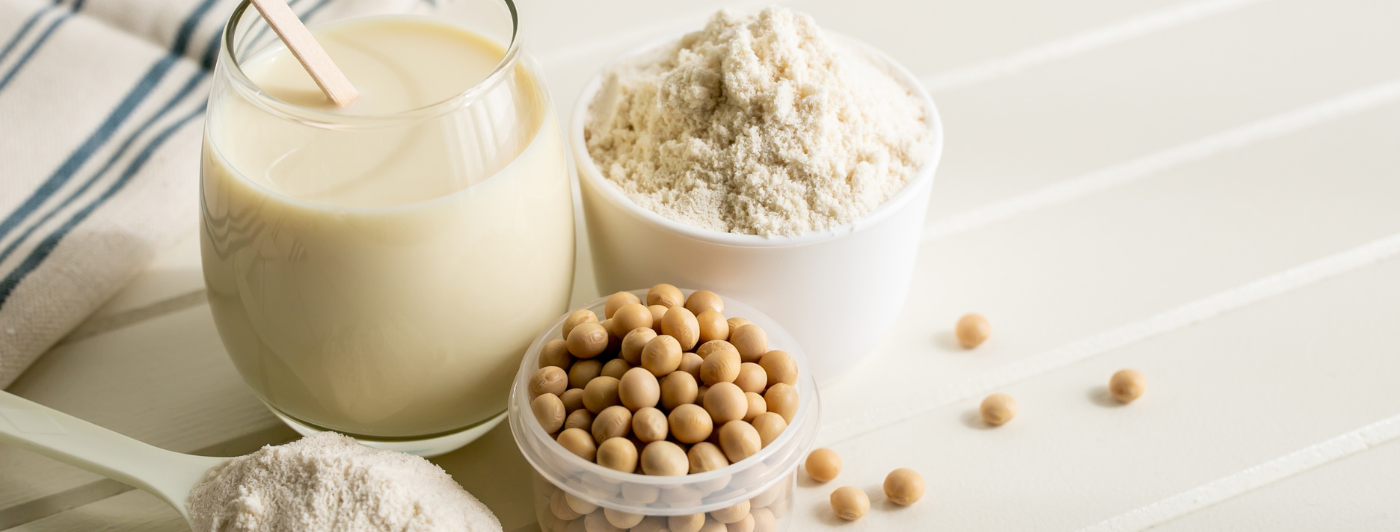Ever wonder why you keep getting breakouts?
Acne is a frustrating skin condition caused by clogged pores filled with oil and dead skin cells. These clogged pores become breeding grounds for bacteria, leading to pimples, whiteheads, blackheads, and even cysts. While teenagers are most commonly affected, acne can show up at any age.One question many people have is whether plant based protein powder can worsen acne. This article will explore the link between does protein powder cause acne breakouts, and delve into plant based protein powders as a potential alternative for clearer skin.
Diet and Nutrition: A Contributing Factor?
While the exact link between diet and acne is still being researched, some studies suggest a connection. Here's how your food choices might influence breakouts:
- High Glycemic Index Foods: These foods cause blood sugar spikes, which may increase oil production and inflammation, both contributing to acne. Sugary drinks, white bread, and processed snacks fall into this category.
- Dairy Products: Some research suggests a link between milk consumption and acne, particularly in individuals who are sensitive to dairy.
Plant-Based Protein Powder and Acne: Friend or Foe?
Many people switch to plant-based protein powders for various reasons, including dietary restrictions, ethical concerns, or simply a preference for plant-based sources. But can these powders impact your skin health, specifically causing acne breakouts? Let's delve into the ingredients and the current research.
Common Ingredients in Plant-Based Protein Powders:
- Pea Protein: This champion holds the crown for the highest protein content per gram among plant-based options, making it a great choice for athletes and fitness enthusiasts seeking muscle gain. Additionally, pea protein is naturally hypoallergenic, ideal for those with dairy sensitivities.
- Rice Protein: Rice protein is known for its clean and easily digestible profile, rice protein is a gentle option for those with sensitive stomachs. While slightly lower in protein content compared to pea protein, rice protein is a good source of branched-chain amino acids (BCAAs) that support muscle strength and recovery.
- Soy Protein: The soy protein contains all nine essential amino acids your body can't produce on its own. This makes soy protein a well rounded choice for general health and muscle building. However, some individuals may have soy sensitivities, so a trial run is recommended.
- Hemp Protein: This rising star not only offers a good amount of protein but also packs a punch of healthy fats, including omega-3s and omega-6s. These fats are crucial for overall health and may even support muscle recovery. Hemp protein's unique nutrient profile makes it a compelling option for health-conscious individuals.
- Other Plant Sources: The plant based protein world extends beyond these mainstays. Powders can also be formulated with protein from seeds like chia and pumpkin, nuts like almonds, and even legumes like lentils. These options provide a variety of nutrients and can cater to specific dietary preferences, like nut-free or gluten-free needs.
Acne is a complex issue with multiple contributing factors. While diet can play a role, it's just one piece of the puzzle. Plant based protein powders themselves are unlikely to cause acne. In fact, they may even be a better choice than whey protein for acne-prone individuals.
- Unlike whey protein, a dairy-based source, plant-based powders generally don't elevate insulin like growth factor 1 (IGF-1), which can worsen acne in some individuals. Plant based protein powders, on the other hand, generally don't have this hormonal effect. This lack of hormonal influence makes them a potentially gentler option for acne prone individuals.
- Plant based protein sources often contain fiber, which can promote a healthy gut microbiome by encouraging beneficial bacteria. Gut health may indirectly influence acne by potentially reducing inflammation. While the connection between gut health and acne is still being investigated, some experts believe that reducing gut inflammation might indirectly benefit acne prone skin.
- Whey protein may cause gut inflammation due to lactose content that may contribute to increased sebum production, a major factor in acne formation. Undigested lactose can ferment in the gut, leading to bloating, gas, and even inflammation. Plant based protein powders typically don't contain lactose, potentially minimizing gut discomfort and potentially reducing the risk of sebum overproduction.
It's important to remember that everyone's body reacts differently, and acne has multiple contributing factors. However, with their lack of hormonal influence, potential gut health benefits, and absence of lactose, plant based protein powders might be a smart choice for those looking for a protein boost without aggravating their acne.
Why is Plant Based protein powder a great option?
Even if plant based protein powder doesn't directly cause acne, it might be a good alternative for those concerned about breakouts linked to whey protein. Unlike whey, plant based powders generally lack the hormonal effects that some believe can worsen acne. Plant based protein sources are high in fiber, which can promote gut health, potentially reducing inflammation, another factor linked to acne development. While the research on plant based protein and acne specifically is ongoing, if you're looking for a protein powder that might be gentler on your skin and gut, exploring plant based options is a great place to start. Remember, with so many varieties available, finding the Best Plant Based Vegan Protein Powder for Muscle Gain depends on your specific needs and preferences. Consider factors like protein content, ingredient list, and flavor when making your choice.
Conclusion:
Current research suggests plant based protein powders are unlikely to directly trigger acne breakouts. In fact, their lack of hormonal stimulation compared to whey protein might even make them a better choice for acne-prone individuals. However, remember that acne is a complex issue with multiple contributing factors. While diet can play a role, a personalized approach is best. Consult a dermatologist for a customized evaluation and treatment plan.
In Case, if you are considering taking protein powder without working out, it is essential to understand that protein supplements are designed to supplement your diet and should not be used as meal replacements. It is crucial to maintain a balanced diet and exercise regimen to achieve the best results from protein powder consumption.











